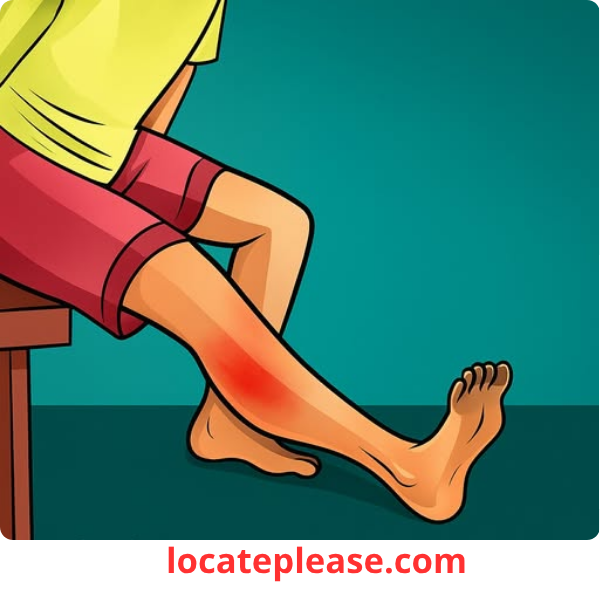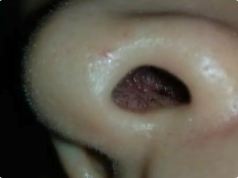You’re fast asleep — until a sudden, vice-like grip in your calf or foot jolts you awake. You’re not dreaming. It’s a nocturnal leg cramp — a painful, involuntary muscle spasm that strikes without warning, often lasting seconds to minutes. For many, it’s a familiar nighttime visitor. But while occasional cramps may seem like a minor annoyance, they’re often your body’s way of sending a message.
So, what is your body trying to tell you when you experience night cramps? The answer may lie in your nutrition, hydration, circulation, or lifestyle habits — and understanding the root cause can help you prevent them for good.
What Are Night Cramps?
Nocturnal leg cramps are sudden, painful contractions of the muscles — most commonly in the calf, foot, or thigh . They can be brief or last several minutes, and may leave soreness even after the spasm passes.
Unlike restless legs syndrome (which causes discomfort and an urge to move), night cramps involve tight, visible muscle tightening — and they’re more common than you think:
- Affecting up to 60% of adults
- More frequent in older adults , pregnant women, and athletes
But while they’re common, they’re not always normal.
What Your Body Is Trying to Tell You
Night cramps aren’t usually a sign of a life-threatening condition — but they can signal underlying imbalances . Here are the most common messages your body might be sending:
1. “I’m Low on Key Minerals”
Your muscles need a delicate balance of electrolytes to contract and relax properly. A deficiency in any of the following can trigger cramps:
- Magnesium – Known as the “relaxation mineral,” it helps regulate muscle and nerve function.
Deficiency signs: Muscle twitching, fatigue, insomnia. - Potassium – Essential for muscle contractions and fluid balance.
Found in: Bananas, sweet potatoes, spinach, avocados. - Calcium – Helps muscles contract, but imbalances can lead to overactivity.
Deficiency signs: Numbness, tingling, muscle spasms. - Sodium – Often overlooked, low sodium (especially from overhydration) can contribute to cramping.
✅ What to do: Eat more mineral-rich foods or consider supplements (especially magnesium glycinate or citrate) — after consulting your doctor.
2. “I’m Dehydrated”
Even mild dehydration can disrupt the balance of electrolytes in your body, making muscles more prone to cramping.
This is especially common:
- After intense exercise
- In hot weather
- If you’re not drinking enough water throughout the day
💧 Tip: Thirst isn’t the only sign of dehydration. Dark urine, dry mouth, or fatigue are red flags.
3. “My Circulation Needs Help”
Poor blood flow can cause cramps — especially in the legs. Conditions like:
- Peripheral artery disease (PAD)
- Varicose veins
- Prolonged sitting or inactivity
…can reduce oxygen delivery to muscles, leading to cramping at night.
🚩 Warning: Cramps that worsen with walking or are accompanied by swelling, discoloration, or cold limbs should be evaluated by a doctor.
4. “My Muscles Are Overworked or Tense”
Overuse, poor posture, or sleeping in awkward positions can strain muscles, making them more likely to spasm at rest.
- Athletes or those on their feet all day may experience cramps as muscles recover.
- Sitting with legs crossed or feet pointed downward can shorten calf muscles over time.
🛏️ Sleep tip: Keep your toes pointed upward at night — use a pillow under your feet or a bed cradle to avoid pointing your toes.
5. “Something Else Is Going On”
In some cases, frequent night cramps may be linked to:
- Nerve compression (like sciatica)
- Diabetes (nerve damage or circulation issues)
- Thyroid disorders
- Liver or kidney disease
- Medication side effects (diuretics, statins, asthma meds)
Pregnant women often experience cramps due to increased weight, pressure on nerves, and mineral shifts — especially in the third trimester.
How to Prevent Night Cramps
You don’t have to suffer in silence. Try these science-backed strategies:
✅ Stretch daily – Especially your calves and hamstrings. Try a wall stretch before bed.
✅ Stay hydrated – Drink water throughout the day, not just when thirsty.
✅ Eat electrolyte-rich foods – Include leafy greens, nuts, bananas, and dairy.
✅ Warm up before bed – Gentle movement or a warm bath can relax muscles.
✅ Massage your legs – Use lotion or oil to improve circulation.
✅ Consider magnesium supplements – Many people are mildly deficient.
✅ Avoid prolonged sitting – Get up and move every hour.
When to See a Doctor
While most night cramps are harmless, consult a healthcare provider if you experience:
- Cramps multiple times per week
- Severe pain that doesn’t improve
- Muscle weakness or swelling
- Cramps in other muscles (arms, abdomen)
- No clear cause despite lifestyle changes
These could indicate an underlying medical condition that needs attention.
Final Thoughts: Listen to the Signal
Night cramps might seem like a small issue — but they’re your body’s way of saying, “Something’s off.” Whether it’s dehydration, mineral deficiency, or poor circulation, the message is worth hearing.
Instead of just riding out the pain, take it as a cue to:
- Rehydrate
- Replenish
- Reassess your habits
Because when you listen to your body, you don’t just stop the cramp — you support your long-term health.
🌙 Next time you wake up with a cramp, don’t just stretch it away. Ask: What is my body trying to tell me?
The answer might just help you sleep better — for good.






